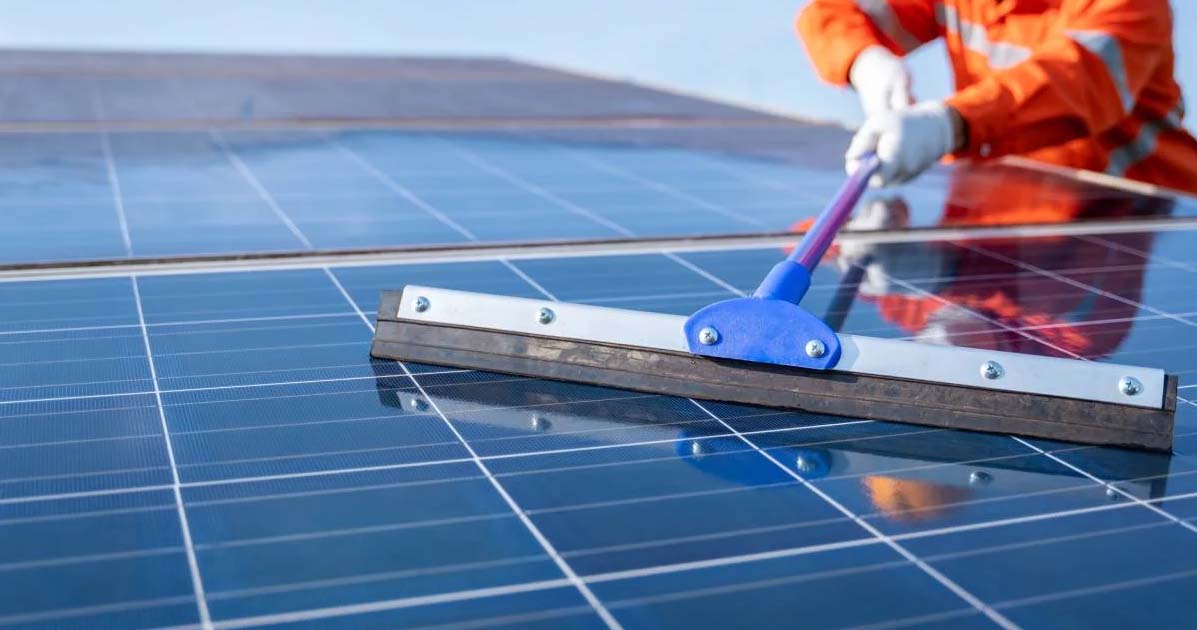Shams Power: Shining Bright: Improving Solar Panel Efficiency in the Summer
Understanding the Challenges
Before diving into the solutions, it's crucial to understand the challenges solar panels face in hot climates. High ambient temperatures can lead to a decrease in the efficiency of photovoltaic (PV) cells. When solar panels get too hot, their performance suffers, and they produce less electricity. Dust accumulation and shading can also affect the overall efficiency of the panels. Therefore, commercial sectors must address these issues to maximize solar energy output during the summer months.
Optimal Panel Placement
The orientation and placement of solar panels play a vital role in maximizing their efficiency. In Pakistan, where summers are characterized by scorching heat, it is essential to position the panels to minimize their exposure to direct sunlight during the hottest parts of the day. Mounting them at an angle for better airflow and cooling can help reduce temperature-related losses. Regular inspection and cleaning to remove dust and debris can also ensure maximum sunlight absorption.
Temperature Regulation
Commercial sectors can consider implementing temperature regulation techniques to combat the adverse effects of high temperatures on solar panels. One effective solution is to use cooling systems such as active and passive cooling methods. Active cooling involves using fans or water cooling systems to dissipate excess heat from the panels. On the other hand, passive cooling methods utilize design features like reflective coatings and ventilation to reduce heat buildup. Employing such techniques can significantly improve panel efficiency during the sweltering summer months.
Advanced Inverter Technology
The efficiency of solar panels is closely linked to the performance of the inverter, which converts the DC electricity generated by the panels into usable AC electricity. Upgrading to advanced inverter technology can enhance the overall system efficiency, especially during high-temperature conditions. Some modern inverters offer maximum power point tracking (MPPT), which optimizes power generation by adjusting to the panel's current operating conditions. Investing in these advanced inverters can yield substantial gains in solar panel efficiency.
Regular Maintenance and Cleaning
Proper maintenance and regular cleaning are vital to ensuring optimal solar panel efficiency. Dust accumulation on the panel surface can significantly reduce sunlight absorption and, consequently, electricity production. Commercial sectors should schedule regular cleaning sessions to remove dust, debris, and other pollutants. By keeping the panels clean and free from obstructions, businesses can maintain higher levels of solar energy output throughout the summer.
Energy Storage Solutions
Integrating energy storage solutions like batteries can further optimize solar panel efficiency. By storing excess energy generated during the day, businesses can ensure a consistent power supply during peak demand hours and even at night. Batteries buffer against fluctuations in solar energy production caused by factors like intermittent clouds or shading. This not only maximizes the utilization of solar energy but also reduces reliance on the grid during peak hours.
Monitoring and Data Analysis
Implementing a robust monitoring and data analysis system allows businesses to track their solar panels' performance closely. Real-time monitoring can provide valuable insights into energy generation, efficiency, and potential issues. By identifying patterns and trends, commercial sectors can make data-driven decisions to optimize system performance and mitigate any efficiency losses promptly. Regular performance analysis can help identify and rectify any underperforming panels or components, improving overall system efficiency.
Utilize Solar Tracking Systems:
Implementing solar tracking systems can significantly improve energy generation during the summer months. These systems adjust the position of solar panels throughout the day to track the sun's movement, ensuring maximum exposure to sunlight. By dynamically aligning the panels, businesses can capture more sunlight and enhance efficiency.
Implement Shade Management Techniques:
Shading can have a detrimental impact on solar panel efficiency. Assess the surrounding environment and identify potential sources of shade, such as nearby buildings, trees, or structures. Employ shade management techniques such as trimming trees, adjusting the panel placement, or using shading analysis tools to minimize the shading impact and ensure consistent sunlight exposure.
Conduct Regular Electrical Inspections:
Regular electrical inspections are essential to identify any wiring issues or faults that may affect the performance of solar panels. Faulty wiring can lead to energy losses and reduce overall system efficiency. Schedule periodic inspections by qualified electricians to ensure the electrical connections are secure and all components function optimally.
Consider Solar Panel Coatings:
Applying specialized coatings to the surface of solar panels can improve their efficiency. Anti-reflective coatings reduce reflection and increase light absorption, while hydrophobic coatings repel dust and water, keeping the panels cleaner for extended periods. These coatings can enhance overall performance and reduce the need for frequent cleaning.
Implement Smart Energy Management Systems:
Integrating intelligent energy management systems can optimize solar panel efficiency by intelligently managing energy consumption and distribution. These systems use real-time data to prioritize energy usage, allowing businesses to maximize self-consumption of solar energy and minimize reliance on the grid during peak hours. Intelligent energy management systems can also provide insights into energy consumption patterns, enabling businesses to make informed decisions on energy optimization.
Promote Employee Awareness and Engagement:
Educating employees about the importance of solar energy and encouraging energy-saving practices can improve efficiency. Raise awareness about the benefits of solar power and the need for energy conservation. Encourage employees to turn off lights, computers, and other appliances when not in use. By fostering a culture of energy consciousness, businesses can optimize their solar panel efficiency and reduce overall energy consumption.
Collaborate with Experts and Consultants:
Seeking guidance from solar energy experts and consultants can provide valuable insights and recommendations tailored to specific commercial sectors. These professionals can conduct energy audits, identify efficiency improvement opportunities, and propose customized solutions to maximize solar panel performance. Collaborating with experts can help businesses make informed decisions and achieve optimal efficiency gains.
Incorporating these additional points into the strategies discussed earlier will further assist commercial sectors in Pakistan in improving solar panel efficiency during the summer months, ultimately driving sustainable energy practices and reducing reliance on conventional power sources.
.jpg)


.jpg)

Comments
Post a Comment